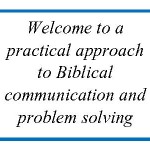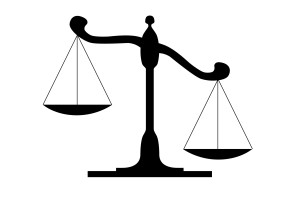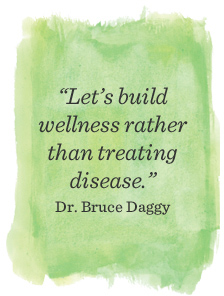In our previous articles we have been expanding on the full breadth of communication through the acronym BEST. We have noted this is a prescription written by Dr. Ed Wheat, M.D. in his book Love Life for Every Married Couple for attaining and maintaining Great Communication: Bless, Edify, Share and Touch. The principles we have …
Category: Getting Rid of Guilt and Resentments
Feb 08
Prescription for Great Communication: Bless, Edify, SHARE and Touch
In our previous articles (here and here), we have been expanding of the full breadth of communication through the acronym BEST. We have noted this is a prescription written by Dr. Ed Wheat, M.D. in his book Love Life for Every Married Couple for attaining and maintaining Great Communication: Bless, Edify, Share and Touch. …
Feb 01
Prescription for Great Communication: Bless, Edify, Share and Touch
Last time I introduced Dr. Ed Wheat, M.D., and his best selling book, Love Life for Every Married Couple. I noted many of the prescriptions Dr. Wheat issues are applicable to relationships outside of marriage. As a physician, he offers the following prescription stated in this acronym: The BEST prescription for a superb relationship: …
Jan 25
The Mechanics of Silent and Listen
Last time we stated that just because a person is silent it does not pre-conclude they are listening. Indeed, the silent person may the thinking of their reply or retort. In either case the listener may be missing out on important details being shared. This would be particularly critical in trying to build or …
Jan 18
Communication Is a Two-Way Avenue
A placard displayed in a frame shop window attracted my attention causing me to pause and mediate upon the two-word inscription. This vital truth attracted me as a teaching tool for our counseling ministry. As a teaching technique I use impact statements based on a verse, passage or Biblical principle. These impact statements deal …
Jan 13
Comparison Is Spelled K-I-L-L-E-R
Glancing back at last week’s article, I repeat: Emily Dickenson, in one of her poems said, “A word is dead when it is said, some say; I say it just begins to live that day.” To say comparison is spelled K-I-L-L-E-R is a lesson in stark reality. Comparison is the key element in advertising …
Jan 04
Negative Humor and the Sensitivity Level
Emily Dickenson, in one of her poems said, “A word is dead when it is said, some say; I say it just begins to live that day.” Lawrence J. Crabbe, in his book The Marriage Builder said, “Words do one of three things: Words can give life; they can wield death; or they can …
Dec 28
How to Attack the Problem without Attacking the Person
Last time we looked at the first two phases of the following diagram. This time we will walk through the third phase. In a brief review we saw when a problem presented itself two people often attack each other – which obviously doesn’t resolve the issue. Next they begin to attack the problem the way …
Dec 22
Attack the Problem and Not the Person
This principle is based on the axiom: An ounce of prevention is worth a pound of cure. If we can prevent a problem from developing, obviously, we do not have to cure that problem. But how do we do this? This is a three-step process outlined by the following diagram. This is taught in the …
Dec 15
Don’t Try to Make it Make Sense – Right Now
Many subliminal signals alert us that something is amiss. Our five senses of human nature, to wit: hearing, seeing, feeling, smelling and tasting work separately, or in concert, for the purpose of warning us and prompting us to take averting action(s). Yes, instant action is often appropriate; if the house is on fire call …
Dec 08
Cover Over Problems Effectively
In this series we are looking at three ways people attempt to solve problems that do not work and why they do not work. First we pointed out that a person’s objectivity for problem solving is often based on their most recent experience(s). We concluded this is an ineffective tool for problem solving for …
Nov 02
Choices, Choices, Choices
From the moment our day begins until it ends we make choices. Choices are amoral, that is, being neither moral nor immoral. Like sins, however, choices carry consequences. First John 1:9 gives partial relief to the repentant sinner: “If we confess our sins, he is faithful and just to forgive us our sins, and to …
Oct 26
You Can’t Steer a Parked Car
We are continuing to look at making life-altering changes. Making superficial and situational changes we learned are not permanent changes – they are temporary. Substantial change, that is, a change of attitude can be permanent by maintaining a new, and better, attitude accompanied by changing the direction of our behavior. However, you can’t steer …
Oct 19
Third of the Three Levels of Change: The Substantial Level
Repeating from last week, the first time I heard the statement, There is no change if there is no change, I thought it redundant. But after the Holy Spirit explained it to me I saw the value of this truth: If you want tomorrow to be different from yesterday, you must do something different today …
Oct 13
Second of the Three Levels of Change: Situational Level
The first time I heard the statement, There is no change if there is no change, I thought it redundant. But after the Holy Spirit explained it to me I saw the value of this truth: If you want tomorrow to be different from yesterday, you must do something different today – different as in …
Oct 05
First of the Three Levels of Change: Superficial Level
The first time I heard the statement, “There is no change if there is no change,” I thought it redundant. But after the Holy Spirit explained it to me I saw the value of this truth: If you want tomorrow to be different from yesterday, you must do something different today. The World (society) says, …
Sep 30
Who Is the Primary Source of Our Problems?
Last week I ended with the question: Who Is the primary source of our problems? Although the answer to this question does not come from a theological source the answer is consistent with Scripture. The answer actually comes from the comic strip character, Pogo, who boldly proclaimed: “We have met the enemy, and he …
Sep 21
Who is the Third Least Source of Our Problems?
Don’t allow the third least source of our problems open the door to blame shifting. Blame shifting is the oldest form of mankind’s attempt to explain away wrong behavior. We learn this from the Genesis 3:8-13 account wherein we read of Adam explaining to God, “The woman whom thou gavest to be with me, …
Sep 14
The Second Least Source of Our Problems
Last time it was noted God is often blamed for letting things happen to us. It is wrongly asserted that because He is all-powerful He could prevent problems plaguing us. You may recall Flip Wilson saying with an impish grin, “The Devil made me do it.” That line was his hallmark expression spoken to …
Sep 11
The Rule of Proportion
To say problems are solutions in disguise doesn’t explain where problems might originate. The root-level of problems, I’ve found in thirty-plus years of counseling, comes from one of two areas or a combination of these areas: unresolved anger and/or unresolved resentments. There are four sources from which problems stem creating these unresolved issues. We’ll start with the …

Do You Need Help:
- Applying Biblical Principles to Everyday Problems
- Becoming One Flesh with Your Spouse
- Changing Your Actions Regardless of Your Feelings
- Discovering and Developing Your Spiritual Gifts
- Getting Rid of Guilt and Resentments
- Identifying and Isolating Problems
- Knowing God's Will for Your Life
- Uncategorized
Search Website
Archives
What People Are Saying
*
Testimonials page coming soon!
Donate to the Ministry
Subscribe to my Blog
CREATING the male first did not establish his superiority, rather it established his need: And the Lord God said, It is not good that the man should be alone.
CREATING the female second did not establish her inferiority, rather it established her mission: I will make an help meet for him.























